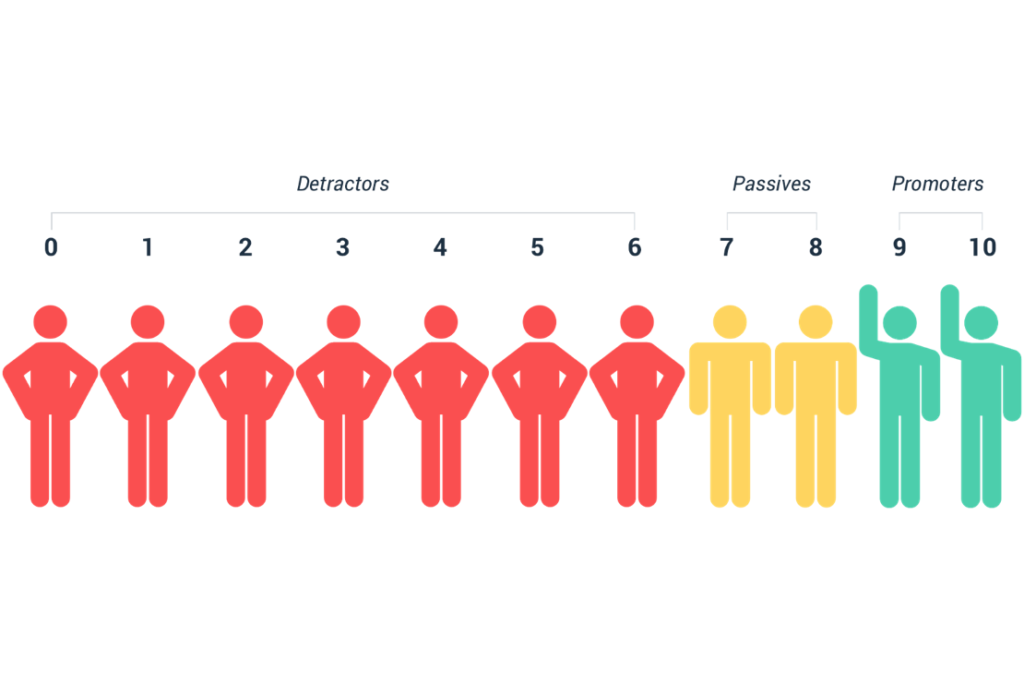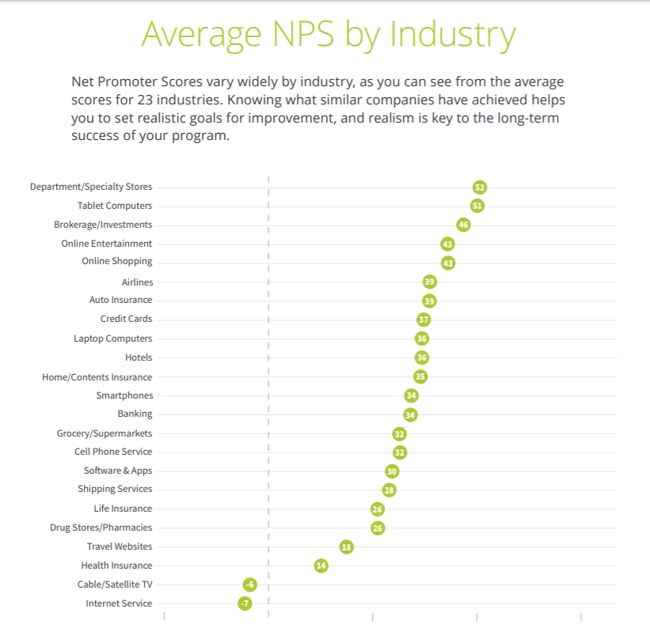“Most businesses track their online reviews religiously yet they have no metric to assess an even more important marketing tool; word of mouth.†– GatherUp
Word of mouth marketing is your sales team’s most useful form of marketing, and calculating your Net Promoter Score (NPS) is one of the best ways to increase it.
What Is Net Promoter Score?
Net Promoter Score (NPS) is a way for companies to quantify the likelihood customers will recommend their products or services. NPS scores can range from -100% to +100% and are determined by a subtraction formula following a simple survey question:
“On a scale of 0-10, how likely is it you would recommend us to friends and family?â€
How To Measure Net Promoter ScoreÂ
Once customers give their answer, they can be sorted into one of three categories. “Detractors,†“Passives,†and “Promoters.â€

Here’s how each customer category breaks down:Â
- Answer: 0 – 6 – Detractors – customers who would not recommend your company
- Answer: 7 – 8 – Passives – customers who are indifferent to your company
- Answer: 9-10 – Promoters – customers who would recommend you to friends and family
Calculating Your Net Promoter ScoreÂ
Once you have your responses sorted, you’re ready to calculate your Net Promoter Score. To do this, you simply subtract the % of responders who are “Detractors†from the % of responders who are “Promotersâ€.
NPS = % Promoters – % Detractors
Here’s a great example from John Lusk of The Huffington Post:
“Let’s say you send an NPS survey to 1000 of your customers. You get responses from 100 of those customers (10% response rate). Out of those 100, 50 say that they would be willing to recommend you to a friend (promoters), 10 say that you absolutely sucked (detractors) and they’d tell their friends to stay away from you, and the remaining 40 were indifferent [passive].â€
50% – 10% = 40%
In this case, your NPS score is +40%.
A Note On Passives
“Passive responses are left out of the equation because they can’t be counted on to either recommend or give negative reviews.†– Hubspot
However, while passives are indifferent, they can switch or be converted to either promoters or detractors. This makes them an important part of the next phase of acting to improve your NPS.
Calculating your NPS is just the beginning. With this useful metric, you can then compare your score with the benchmarks of your particular industry.

Do you fall above or below the average? Is your NPS rising or falling over time? What tactics are you using to improve your score? Are they working? These are all important questions to ask yourself once you know where you stand within your industry niche.
The best thing about Net Promoter Scores is they are not static. You and your marketing team can continually work to increase it by actively listening to what your customers are telling you.
“The Net Promoter Score is the world’s leading metric for measuring customer satisfaction and loyalty. It goes beyond measuring how satisfied a customer is with a company; the Net Promoter Score system is designed to gauge their willingness to recommend it to others.†– Survey Monkey
When your NPS is acted upon, you can raise your level of customer retention whilst simultaneously lowering your marketing budget and overall CPA. While it’s only one part of a larger conversation about how you are perceived by your customers, it’s an excellent place to start!
If you have questions or would like more information, I’d be happy to help. Please send an email, and my team will get in touch with you!


0 Comments